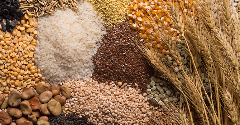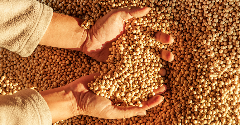News
Chr. Hansen: probiotics can help minimise flu cost
2 Sep 2019Chr. Hansen reports that a new health economics study shows that the intake of probiotics can help reduce the cost of flu-like sickness.
In the US alone, taking probiotics can reduce the number of sick days by over 54 million days per year, according to the study.

Flu-like sickness can take its toll on workforce productivity, health care systems and families with young children, the company notes, and is estimated to have an annual burden on the US economy of $11.2 billion .
According to Chr. Hansen, data from numerous studies already shows a positive correlation between taking certain probiotics and reducing the number of incidents, duration and severity of flu-like sickness. This new study builds upon existing data, to assess the potential health economic impact of probiotics in the US primary care setting. The findings show the significant savings potential taking probiotics can have by reducing the number of sick days, visits to the doctor and prescriptions.
Flu-like sickness is a wide-ranging category including a fever of at least 100°F (37.8°C) and a cough or sore throat. On average over the last five years, there have been 33 million symptomatic cases in the US each year.
“Probiotics are already well established in the healthcare industry, and numerous studies have highlighted the therapeutic potential of specific probiotic strains in helping to maintain a healthy immune system and supporting the defense against harmful bacteria. In addition to the health benefits to an individual, this study demonstrates that taking probiotics also contributes to reducing costs to society and reducing the use of antibiotics. We believe that the impact of probiotics on healthcare will continue to grow in the years to come as we continue to unlock the potential of good bacteria,” said Andrew Scorey, senior vice president, Chr. Hansen Human Health.
Chr. Hansen points out that, according to the World Health Organization (WHO), antibiotic resistance is one of the biggest threats to global health, food security and development today, and it is expected to exceed cancer as the main cause of death by 2050. It is estimated that more than one in three of the antibiotics prescribed to treat flu-like sickness in the US are redundant.
The new study reveals that in the US, some 2.2 million antibiotic courses could be avoided each year if the population takes probiotics.
“We already know that the overuse of antibiotics can cause bacteria to become resistant, meaning current treatments will no longer work. This study provides further evidence of how probiotics and ‘good bacteria’ can respond to some of the world’s biggest challenges,” said Scorey.
The results of the study are published in the journal Frontiers in Pharmacology and were authored and reviewed by independent industry and academic experts. Chr. Hansen sponsored the development of a new simulation model used in the study. The publication title is: Probiotics reduce healthcare cost and societal impact of flu-like respiratory tract infections in the USA: An economic modeling study.
The underlying data used in the study came from two independent reviews: York Health Economics Consortium (YHEC) and Cochrane. The clinical trials in these reviews used 22 probiotic strains, including Chr. Hansen’s Lactobacillus rhamnosus and Bifidobacterium animalis.
“This study builds on independent clinical trials and translates the clinical findings into cost and impact on primary health care. The results present a very strong case for probiotics. At Chr. Hansen, we will continue to build on these findings looking closely into how specific strains can support this health area. As a result of this study, we now have a new simulation model that will provide us with new ways to work with data in future studies,” said Adam Baker, senior manager, Human Health Development at Chr. Hansen.
Chr. Hansen owns some of the world’s best documented probiotic strains. The large number of scientific publications and clinical studies on these strains indicate that they may have beneficial effects on the immune functions.
Related news

BelliWelli secures funding for retail and team expansion
2 Jan 2025
US fibre brand BelliWelli has confirmed a further $10 million series B investment from Invus. The investment will help the company further expand its presence in the US.
Read more
EU calls to harmonise allergen labelling increase
1 Jan 2025
Allergy awareness efforts focus on implementing a European reference laboratory and collaboration to standardise labels and support allergen identification.
Read more
Japanese study points to risk of excessive nutritional fortification
31 Dec 2024
Fortified foods and supplements are mainly beneficial but there is a small risk of over-supplementation – particularly for vitamin B6, a Japanese study has concluded.
Read more
Is it time for a global definition of whole grain?
30 Dec 2024
Amid a lack of harmonisation, the European Food Information Council (EUFIC) is calling for a global definition of the term whole grain to end consumer confusion.
Read more
EFSA publishes new food additive research on non-nutritive sweetener saccharine
27 Dec 2024
The European Food Safety Authority (EFSA) has released new recommendations on saccharin and its sodium, potassium and calcium salts (E 954) as food additives.
Read more
FDA delivers workshop on nutrition regulation and science
19 Dec 2024
The FDA hosted a nutrition regulatory science workshop exploring ultra-processed foods and emerging technologies, aiming to spotlight the relationship between nutrition, science, and evidence-based policies.
Read more
How US soy exports shape Southeast Asian food
19 Dec 2024
As Southeast Asia and the US mark 20 years of trade, trends in soy, especially plant-based preferences, signal increasing demand for high-quality protein sources.
Read more
Hormel Foods sells its Health Labs brands to Lyons Magnus
17 Dec 2024
Hormel Foods has confirmed the sale of its Hormel Health Labs division to Lyons Magnus, creating Lyons Health Labs. The strategic move aims to better position Lyons Magnus as a leading player in the growing US market for nutritional and health products...
Read more
Nestlé releases products for pregnancy and fertility
13 Dec 2024
Building on in-house research, existing scientific evidence, and consumer demands, the global food company has developed products designed for mothers and babies.
Read more
Consumer awareness and transparency key factors in shift to natural-based emulsifiers
11 Dec 2024
The demand for natural-based emulsifiers in the food industry is surging as health concerns over the use of synthetic emulsifiers have consumers looking for alternatives.
Read more